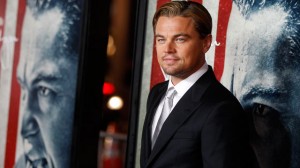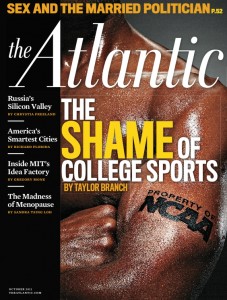
Photo from www.fredshuttlesworthfoundation.org
There was an emotional reunion and farewell on Monday, October 24 at the funeral of Rev. Fred Shuttlesworth. He died of natural causes at 89.
I was honored to be there with so many people from the civil rights movement, who rightly acclaimed Shuttlesworth as its boldest and most fearless nonviolent leader in the face of segregationist repression.
Many preachers in the pulpit far exceeded the prescribed time limit for remarks, of course, but most of them were worth it. Rev. Joseph Lowery, who delivered the signal prayer at President Obama’s inauguration, had everybody helpless with laughter and then tears at 90. The ailing C.T. Vivian appeared by video from his home in Atlanta. Andy Young responded gracefully to gentle humor about being too nice and bourgeois for the tastes of a firebrand like Shuttlesworth.
I sat next to Martin Luther King, III. Just in front of us, Rep. John Lewis stayed for the entire 6-hour service and never seemed restless. Old friends greeted each other and stopped by to chat softly during breaks. Among many others were Rose Sanders of Selma, Peter Yarrow of Peter Paul & Mary, Bernard Lafayette of SNCC, historian Diane McWhorter, Dick Gregory the crusader comedian, and the former U.S. Attorney Doug Jones, who at last won convictions in the Birmingham church bombing case from 1963.
There was also wonderful music. For me, the most moving moment occurred when Shuttlesworth’s four children summoned about twenty of his descendants to the rostrum and sang a spontanous spiritual that started ragged but gathered precision and close harmony in many parts. They inspired tears in the congregation and stepped down with modest dignity, saying “grandaddy” has always wanted them to sing when they gathered.
All of us did our best to find a fresh angle of tribute when our turn came to stand in the pulpit over the coffin. Xernona Clayton, who worked for Dr. King at SCLC, preceded me with one of the stories from my prepared remarks, but that was fine with me. There was a clock running to reduce longwindedness, and I wanted to shorten my tribue anyway.
The service was filmed for podcast. If you’re interested, I’m sure the voluminous eulogy tributes will be available soon via Google. Here is mine in advance.
Tribute Remarks by Taylor Branch
Funeral of Rev. Fred L. Shuttlesworth
Faith Chapel
Birmingham, Alabama
October 24, 2011
To the Shuttlesworth family, all the church families gathered here, to former members of the Alabama Christian Movement for Human Rights, and to every friend of freedom through nonviolent bravery and sacrifice, let me say what a bittersweet honor it is to help bid farewell to the earthly form of the movement’s unsurpassed champion, Rev. Fred Shuttlesworth.
I knew him best through many years of scholarship. Our personal contacts were limited, although I’ll never forget marching right beside him through Memphis on the 30th anniversary of Dr. King’s assassination, with Rev. Shuttlesworth ever the intrepid leader, telling stories while he said boldly “Follow me,†and “Everybody get out of the way.â€
On visits to Selma and other places, we reminisced about the history that he had made and I had studied. Once long ago at a small church in Baltimore, Rev. Shuttlesworth was acknowledged but declined to speak, saying he was too tired, but the next thing we knew he was revved up to full throttle with his arms outstretched wide like this, banking and twisting as his words flew with the spirit. My wife Christy was astonished by the spell of his sermon. Rev. Shuttlesworth was a bantam in size, but she said his hands were huge and expressive. He was rough-cut as a boy. He once told me he may even have had a whiskey still way back in the woods, but the Lord’s call to the ministry gave him new grace, and in the pulpit his sermons soared on the full wingspan of a 747.
More than fifty years ago, early in his fight against segregation’s citadel here in Birmingham, a frightened minister announced that God had appeared to him in a vision with instructions to call off Shuttlesworth’s protest. Rev. Shuttlesworth answered with a fiery eye, crying out, “Since when did the Lord send my messages through you? The Lord told me to call it on!â€
Still, we should remember that not even he could win freedom by himself. The dam of change broke from Birmingham across the United States, and indeed across the world, only when almost two thousand children went to jail here in 1963, some as young as six years old. In the annals of history, I know of no comparable impact from the witness of youth except perhaps the Passover sacrifice of firstborn sons in Egypt. Birmingham’s children actively marched through police dogs and fire hoses so fierce that a stream of water cracked several of Rev. Shuttlesworth’s ribs on May 7.
He exhorted the mass meeting to continue the marches, telling once of an old country farmer whose daughter kept asking him, “Daddy, what makes the lightning bugs light up?†And the farmer mumbled and scratched his head, because he didn’t want to admit that he didn’t know. She pressed him, and finally the old farmer replied, “Well, baby, I’ll tell you about the lightning bugs. The stuff is just in ‘em, that’s all!†Rev. Shuttlesworth drove home his point with a twinkle. “And it’s the same with the spirit that these black folks be free,†he declared from the pulpit. “The stuff is just in ‘em!â€
Years later in Baltimore, he approached the end of his spontaneous sermon. “I’m looking for a place to land!†he called out, arms stretched wide, but again and again he soared off on new wings of inspiration. Now at last he has landed with the angels of justice, the angels of democracy, the angels of love and salvation. May he abide with them as we tend the spirit of Fred Shuttlesworth. It can light up the world. The stuff was just in him. Let us keep it bright.
Continue Reading






